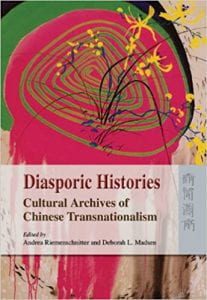 The discourse on Chinese Indonesians has focused mostly on the notion of victims and bystanders. Since transitions of powers in Indonesia were often followed by violence against Chinese, writings on Chinese Indonesians have been dominated by prejudice and persecutions especially during the regime changes, portraying Indonesians of Chinese descent as “invasive agents.” Moreover, many of the Chinese diaspora in Southeast Asia, including Indonesia, are considered “outsiders” in their host countries since their identity and culture are similar and have mostly remained the same for hundreds of years. These views diminish the significance of Chinese Indonesians’ roles in “shaping, moderating, or stimulating social change in Indonesia” (p. 8). Chinese Indonesians and Regime Change suggests that we need to switch from those perspectives to understand the important contributions of Chinese Indonesians throughout the history of Indonesia. Edited by Marleen Dieleman, Juliette Koning, and Peter Post, the essays collaboratively explore Chinese Indonesians’ “active agency.”
The discourse on Chinese Indonesians has focused mostly on the notion of victims and bystanders. Since transitions of powers in Indonesia were often followed by violence against Chinese, writings on Chinese Indonesians have been dominated by prejudice and persecutions especially during the regime changes, portraying Indonesians of Chinese descent as “invasive agents.” Moreover, many of the Chinese diaspora in Southeast Asia, including Indonesia, are considered “outsiders” in their host countries since their identity and culture are similar and have mostly remained the same for hundreds of years. These views diminish the significance of Chinese Indonesians’ roles in “shaping, moderating, or stimulating social change in Indonesia” (p. 8). Chinese Indonesians and Regime Change suggests that we need to switch from those perspectives to understand the important contributions of Chinese Indonesians throughout the history of Indonesia. Edited by Marleen Dieleman, Juliette Koning, and Peter Post, the essays collaboratively explore Chinese Indonesians’ “active agency.”
In the introduction, the editors presents an “alternative perspective” that views Chinese Indonesians not only as bystanders or victims of these historical events but also “active agents of change.” The following chapters examine regime changes in Indonesia from multiple perspectives, focusing on the everyday lives of these agents including a shopkeeper, small businessman, and teenager. The book shows how Chinese Indonesians who came from different economic and social backgrounds have significant, active roles in building the future for themselves and the country.
The book presents this alternative perspective in three parts. The first part focuses on policy and dignity where authors Juliette Koning, Nobuhiro Aizawa, and Andreas A. Susanto explore the notions of “assimilation, identity, and belonging” from multiple perspectives. Koning analyzes the influence of charismatic Christian religious movements on Chinese Indonesians. Quite a number of Chinese Indonesians followed these movements since they provided a sense of “belonging.” Aizawa explores the Chinese assimilation policy during Suharto’s era, especially the ways the Indonesian Ministry of Home Affairs viewed Chinese Indonesians. Susanto studies how Chinese Indonesians, particularly those in the city of Yogyakarta, reacted to Suharto’s assimilation policy and the resulting impact of the policy on their lives.
Moving on to the second part, the essays discuss the notion of justice and representation, exploring how Chinese Indonesians established their identity and rights as citizens. Nobuto Yamamoto demonstrates how peranakan (person of mixed ancestry) Chinese Indonesian journalists, especially the ones living in the 1910s–1930s, were active in promoting nationalism. Moreover, in her essay, Patricia Tjiook-Liem tells Loa Joe Din’s story, a Chinese Indonesian shopkeeper who initiated a transformation in the legal system during the colonial era that affected all Indonesians.
In the last part, which highlights the theme of survival and creativity, Alexander Claver, Peter Post, and Marleen Dieleman examine the various strategies and creative methods that Chinese Indonesians used to survive and thrive amid transitions of power and changes in the economy between the 1930s and 1990s. Claver examines the MargoRedjo Company, a coffee company from Java, that incorporated advanced marketing strategies that enabled the company to flourish during the Great Depression in the 1930s despite its harm on the Indonesian economy. In his essay, Post discusses the Oei Tiong Ham Concern, the biggest Chinese Indonesian firm in the colonial era, who decided not to align themselves with any specific national identity, but instead focused on protecting the company by making adjustments and embracing new possibilities. Lastly, Dieleman analyzes how the Salim Group survived despite the economic instability caused by the fall of Suharto as well as how they managed to develop cooperation with global entities.
This book helps to open our eyes and see Chinese Indonesians through the “alternative perspective.” Though regime changes throughout the history of Indonesia had indeed triggered horrors for Chinese Indonesians, they also provided possibilities for Chinese Indonesians to shape their own future, become “active agents of change,” and make significant contributions to the development of the country.













